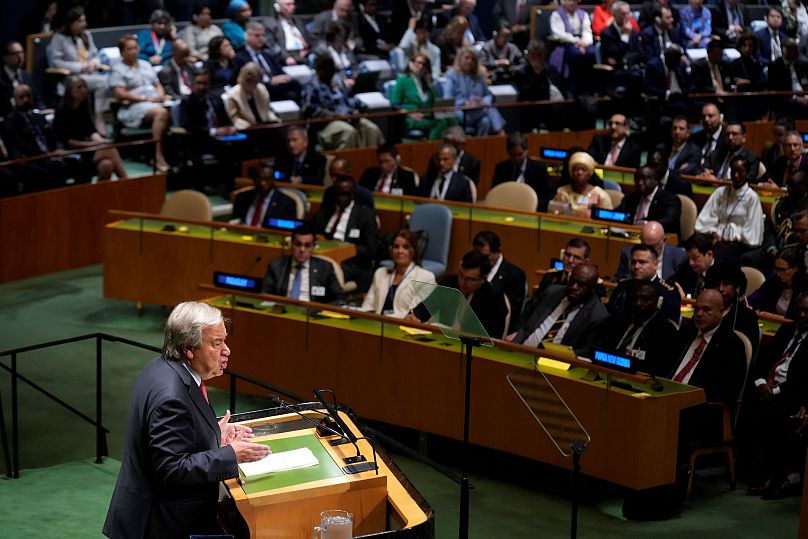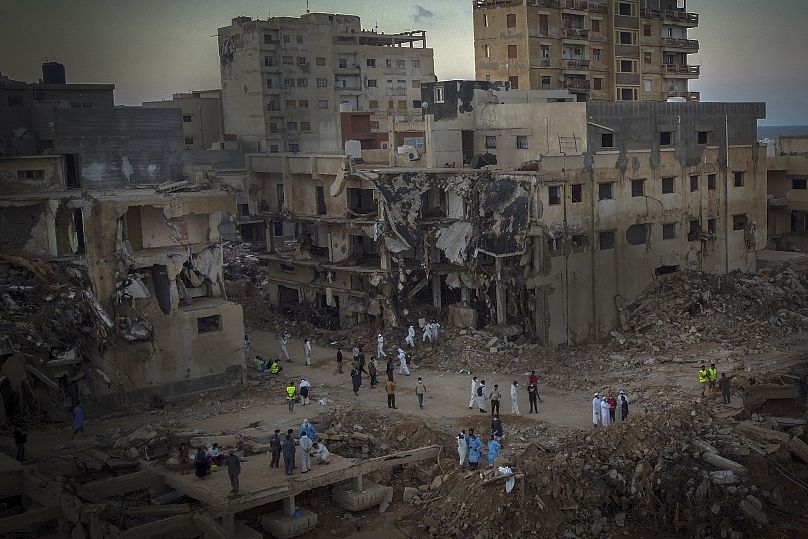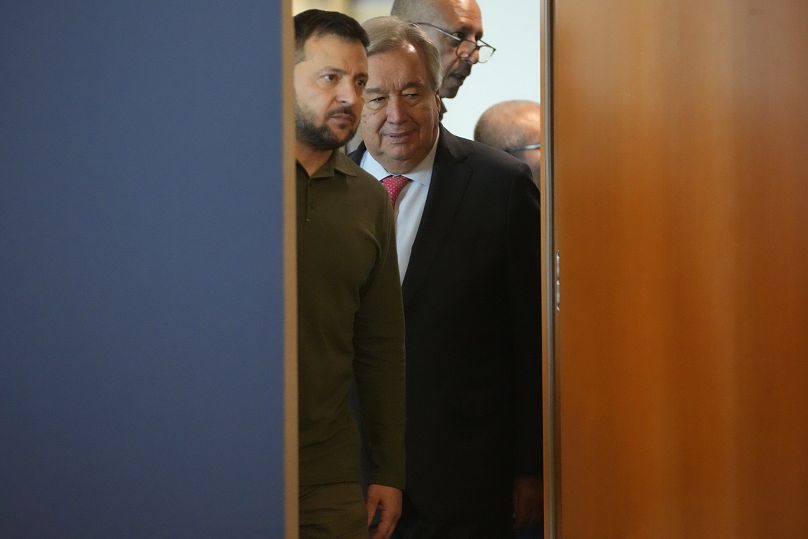Crediting ‘fighters and trailblazers’, the UN climate summit is giving the floor to the world’s most ambitious governments.
A “no nonsense” UN summit aimed at galvanising climate action is taking place in New York today (20 September).
 ADVERTISEMENT
ADVERTISEMENT
 ADVERTISEMENT
ADVERTISEMENT
The Climate Ambition Summit has an exclusive guest list: only national governments deemed to be ‘first movers and first doers’ will be allowed to speak at the event, which is happening during the UN General Assembly (UNGA).
Many big players aren’t being given time on the podium - like the US, China, India and the UK, whose Prime Minister has been widely criticised today over leaked plans to water down key green targets en route to net zero.
“Our focus here is on climate solutions - and our task is urgent. Humanity has opened the gates to hell,” UN Secretary General Antonio Guterres told attendees at the start of the summit.
“If nothing changes we are heading towards a 2.8 degree temperature rise - towards a dangerous and unstable world. But the future is not fixed. It is for leaders like you to write it.”
Which world leaders are at the Climate Ambition Summit?
Of the 100 plus governments which expressed an interest in speaking at the summit, only 34 have been permitted by the UN chief to do so.
European countries and small island nations are well represented on the speaker list. Among G20 nations, only the leaders of Brazil, Canada, France, Germany and South Africa made the cut.
Brazil’s president Luiz Inácio Lula da Silva is expected to announce new and improved climate targets after his predecessor’s era of climate regression. While South Africa and Vietnam’s leaders look set to update on their energy transition deals with richer countries, Climate Home News reports.
The outlet has also heard from a knowledgeable source that governments such as the US and UK had asked Guterres to let them speak, but fell short of his criteria.
Whatever the inner workings of the guest list, it’s a bad look for two of the countries most responsible for historic emissions.
“We are not seeing the leadership we need,” Sir David King, the UK’s former chief scientific adviser, told the Guardian newspaper.
“This is the biggest challenge civilization has ever faced and yet we can’t get the response we need. I can’t tell you how I feel about them just not showing up.”
Other speakers include Chile, Colombia, Egypt, the Ivory Coast, Kenya, Malawi, Pakistan, Sri Lanka, Thailand and Vietnam.
A few financial institutions will be addressing the summit too, including insurer Allianz, the International Monetary Fund and the World Bank.
What are the UN’s proposed solutions to climate change?
“We can still limit the rise in global temperature to 1.5 degrees. We can still build a world of clear air, green jobs, and affordable clean power for all. The path forward is clear. It has been forged by fighters and trailblazers - some of whom are with us today,” Guterres added in his opening address.
The Secretary General outlined a number of UN-led initiatives he wants the world to get behind. These include:
A Climate Solidarity Pact
Guterres called for this “historic pact” between developed and emerging economies at the start of COP27. True to the Paris Agreement, it implores major emitters to make extra efforts to cut emissions, and help poorer countries to do so too. The alternative - of countries failing to reduce emissions in line with the 1.5C goal - he previously dubbed a “Collective Suicide Pact”.
Acceleration Agenda
This, Guterres reminded governments, compels them “to hit fast forward” - so that developed countries reach net zero as close as possible to 2040, and emerging economies as close as possible to 2050. Climate justice is core to this, he added: “many of the poorest nations have every right to be angry.”
Action Plan for Early Warning Systems for All
Guterres reaffirmed that everyone on Earth must be covered by an early warning system by 2027, under the plan launched last November. Around half of the world lacks multi-hazard early warning systems, and countries with limited early warning coverage have disaster mortality eight times higher than countries with high coverage, the UN noted at the time.
Fresh urgency framed his speech today: “Horrendous heat is having horrendous effects,” he said. “Distraught farmers watching crops carried away by floods; Sweltering temperatures spawning disease; And thousands fleeing in fear as historic fires rage.”
At the start of his speech, Guterres apologised that he would not be able to stay until the end of the summit.
“Someone has scheduled a Security Council summit meeting for today at 11am - after this summit had been scheduled - and, according to the rules, I have to be in the security council,” he explained.
“But the fact that I will be leaving before the session ends does not mean that I do not consider this an absolute priority in our work this week.”
Tackle the global financial system and invest in loss and damage, campaigners urge
Today’s summit involves three thematic sessions: ‘Credibility of net zero’, ‘Delivering climate justice’, and ‘Accelerating decarbonisation’.
“The session to strengthen credibility of net zero targets rightly acknowledges that many big polluters have tried to scam the system by carrying on polluting-as-usual, while simply pledging to buy carbon offsets to make weak claims of carbon neutrality,” says Teresa Anderson, Global Lead on Climate Justice, ActionAid International.
A recent report from the global federation found that in the seven years since the Paris Agreement was signed, banks have provided 20 times more financing to the ‘causes’ of climate change in the Global South - industrial agriculture and fossil fuels - than to the solutions.
“Banks have so much culpability for causing this crisis, and so much power to address it. They have the power to turn off the taps, but instead they are fuelling the fire,” says Anderson.
Guterres also addressed the need for governments to push the global financial system towards supporting climate action.
And he instructed all parties to operationalise the Loss and Damage fund at COP28.
“From the floods in Libya to droughts, cyclones, and more floods elsewhere in Africa, to lethal heatwaves across Asia, it’s never been clearer why money is needed for communities to recover and rebuild,” says ActionAid USA’s Director of Policy and Campaigns, Brandon Wu.
“One Summit will not change the world,” concluded Guterres,
“But today can be a powerful moment to generate momentum that we build on over the coming months. And in particular at the COP.
“We can - and we must turn up the tempo.”













